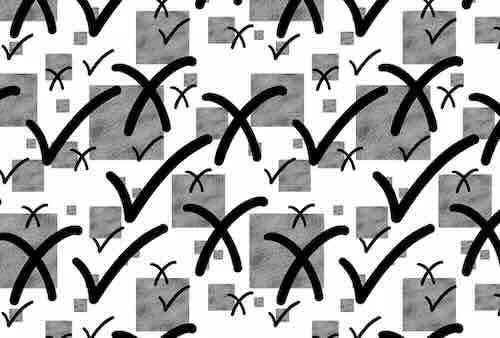Whenever a company or a business firm wants to hire candidates for a specific designation, it asks candidates to email their CVs or resumes to commence the recruitment process. However, merely getting a CV or resume of a candidate is not enough to shortlist the candidates in today’s digital world. Instead, companies need to conduct a detailed analysis of their prospective employees.
For this reason, many companies today conduct social media background checks to gain detailed insights into a candidate's personality, moral values, and potential red flags.
Nevertheless, conducting background checks on candidates across different social media platforms also presents challenges, given certain ethical concerns and underlying privacy laws. In this situation, companies and recruiters should understand the basics of social media background checks before they apply them to job applicants to make the most of the process.
What is a Social Media Background Check
A social media background check consists of reviewing the social media profiles and other online activities of a candidate on different social media platforms. These include almost every major platform, like Twitter, Facebook, Instagram, and LinkedIn. People often share both their professional and personal details on their social media profiles. Hence, companies may use them to understand the behavior and character of the candidates.
Social media background checks are different from a traditional background check, which only focuses on employment history, criminal records, and educational qualifications. The reason is that the social media checks explore the public online persona of a candidate. In simple words, social media background checks intend to assess the values, soft skills, and potential red flags of a candidate. Such checks provide a broad perspective and allow organizations to come up with smart hiring decisions.
Benefits and Risks of Social Media Background Checks
Benefits of Social Media Screening and Background Checks for Organizations
Reviewing social media content and related interactions or public-facing comments on Facebook and other platforms helps HRM to make informed decisions on potential hires. A few of the prime benefits of conducting social media background checks are as follows-
Make Sure that the Candidate Matches the Company's Values and Culture
Most social media platforms’ users feel comfortable while sharing their goals, values, and personalities with fellow users. Reviewing the public comments and statements to avoid conflict between the recruit and the mission and vision of your business organization.
Aware of Potential Problems/Conflicts
If any recruit or employee shows upsetting or erratic behavior on Facebook, Twitter, or any other social media, it may be a warning sign that the respective hire will bring the same type of problem to your company’s professional team.
Cover your Organization’s Assets
Candidates or employees showing ethics and responsibility in their Facebook feeds, Tweets, and other social media will carry the same attitudes and experience into your workforce.
An Easy Method of Informal Reference Check
By performing social media background checks, recruiters verify that the candidates’ online activities align with the qualifications mentioned in their resumes. Accordingly, it may be an easy and informal reference check on candidates.
Potential Risks of Social Media Background Checks
Social media background checks consist of learning about the personal life of a candidate. The methods involved come with several privacy and ethical concerns. If companies and recruiters fail to conduct them properly, the method may cause a negative influence or risks on the hiring process as follows-
Fake and Duplicate Information
All information about a candidate available online is not reliable. Many people have their profiles with the same name. Indeed, recruiters fail to determine the right account that belongs to the job applicant.
Possible Discrimination based on Laws
Social media background verification of candidates must comply with the necessary federal regulations. It may be possible that your recruiter may identify any protected information during the process that may inappropriately impact the hiring decisions.
Time-Consuming or Even a Waste of Time
Social media background verification may sometimes become extremely time-consuming for in-house company recruiters. You need to check many social media websites for each applicant without being sure that the profile you view on each platform is right.
Potential Red Flags to Check to Review the Candidate’s Social Media Presence
Companies and recruiters must be mindful of the following potential red flags while reviewing the social media presence of a candidate-
Inappropriate Behavior or Language
Posts with harsh comments or profanity will highlight poor judgment.
Discriminatory Remarks
Likes or comments showing bias against gender, race, or any other protected class may sometimes result in legal issues.
Evidence on Illegal Activities
Social media content highlighting illegal activities, like vandalism or drug use, will raise many concerns related to the trustworthiness and judgment of a candidate.
How Phyllo’s Social Media Screening Tool Helps Companies Overcome the Risks/Challenges
Based on the benefits, risks, red flags, and ethical concerns associated with social media background verification discussed here, we have understood that background verification is not an easy task for companies or recruiters. Considering this, we have developed an innovative AI-based Phyllo social media screening tool to help you overcome the risks or challenges in social media background checks.
- Phyllo-powered social media screening tool operates on Artificial Intelligence to identify and understand the difference between a threat and a meme.
- The tool also interprets HRs based on similar hashtags and keywords.
- The best thing is that it is designed for human-like and meaningful interpretation of content to reduce false positives related to flagged content.
- Other than that, Phyllo’s social screening product follows every state and federal law associated with pre-employment screening to protect your company’s data. Major federations it covers are DPF, GDPR, EEOC, and FCRA.
Guidelines to Use Social Media Screening Tools Responsibly
Whether you use the advanced AI-based social media screening tool or conduct the task manually, you must be responsible and follow ethical practices only. Accordingly, recruiters and employers should strictly adhere to the guidelines mentioned here-
Set up a Clear Policy
To start the screening process, you must develop a written and regularly applied policy to outline what exactly to screen, the involved platforms, and the purpose behind the verification process.
Focus on Information Related to Employment
Employers and recruiters should define specific criteria that are related directly to job requirements and company values. These include integrity, professionalism, and strict adherence to safety standards.
Make Sure of Consistency
Recruiters should use the same screening process for every candidate and for the same job role to avoid any claim related to discriminatory practices.
Check and Receive Law Consents
You should check both state and local laws and obtain the written consents, if necessary, from the candidate.
Detailed Documentation of the Candidate
You must maintain detailed records of the underlying process, the reviewed information, and the reasons related to hiring decisions.
Conclusion
Social media background checks help organizations to gain valuable insights into the work ethic, character, and cultural fitness of a candidate. However, companies should conduct such checks legally and ethically. Accordingly, you must get a written consent, focus on only job-relevant information, and strictly avoid all sorts of discriminatory practices. By doing so, you will make a fair and informed hiring decision without making any compromise on the candidates’ privacy and work ethics.
Other than that, companies should use the latest AI-based social media screening tools, like Phyllo’s AI-based screening tool, to get the job done ethically and in less time. Therefore, by using proper social media background checks or verification to supplement the conventional screening method, organizations will improve their hiring process. Hence, companies will get the best candidate for a specific designation and ensure their long-term success and survival.
Frequently Asked Questions
What is social media screening or background check?
Social media screening or background check refers to the process in which employers or recruiters review the online or social media profiles of a candidate. Accordingly, the company assesses the professionalism, behavior, and cultural values of a job applicant. Simultaneously, companies make sure that the obtained information is legally compliant.
What are the benefits offered by social media background verification?
Social media background verification provides valuable and deep insights into the communication style, personality, and potential red flags. Accordingly, employers may make informed recruitment or hiring decisions. Besides, the process ensures proper cultural alignment and improves the safety of any workplace.
Is there any negative impact of social media screening?
Yes, the social media screening method also involves a few risks. These are inaccurate information, unconscious bias, privacy violations, and legal issues.
Do background checks also view any private social media?
No, neither of the background checks accesses your private social media accounts. Instead, employers only check your public information. Also, recruiters follow the mandatory privacy laws to prevent all sorts of unauthorized access and prevent unfair hiring practices.
Should recruiters/organizations inform candidates about the social media background or screening process?
Yes, organizations or recruiters should inform candidates about the social media background or screening process. By doing so, they build trust, ensure transparency, and help their organizations strictly comply with the mandatory legal standards. Remember that clear communication is essential to reduce misunderstandings and support an ethical hiring process.










.avif)








.avif)